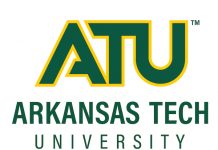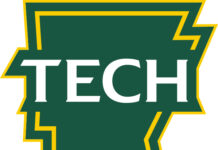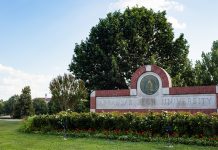 Eight Arkansas Tech University students will travel to Fayetteville for regional competition in the 35th annual Association for Computer Machinery International Collegiate Programming Contest on Saturday, Nov. 6.
Two four-person teams will represent Arkansas Tech in the competition, which challenges college students to use their computer programming skills to solve eight or more complex, real-world problems.
Eight Arkansas Tech University students will travel to Fayetteville for regional competition in the 35th annual Association for Computer Machinery International Collegiate Programming Contest on Saturday, Nov. 6.
Two four-person teams will represent Arkansas Tech in the competition, which challenges college students to use their computer programming skills to solve eight or more complex, real-world problems.
To add to the degree of difficulty, the students must do so using just one computer while operating under a five-hour deadline.
Nick Amis, Joshua Bice, David Lindecker and Saleng Xiong will make up one of the teams from Arkansas Tech. The other will include Ben Goodwin, Michael Pascale, Nathan Pockrus and Will Swaim.
Dr. David Hoelzeman, associate professor of computer and information science, oversees the program on the Arkansas Tech campus.
Arkansas Tech is among 1,900 institutions of higher learning around the world that are participating in the 2010 contest, which is sponsored by IBM and is also known popularly as the “Battle of the Brains.”
A news release from the Association for Computing Machinery stated that participation in the event has increased by more than 800 percent since 1997.
“This competition challenges university students to complex and rigorous real-world problems using open technology and advanced computing methods under a grueling five-hour deadline,” stated the news release. “In one day, these students will complete an entire semester’s worth of computer programming.”
Regional rounds of competition will produce 100 teams that will advance to the world finals on March 4, 2011, at Maritim Jolie Ville Resorts and International Conference Center in Sharmel-Sheikh, Egypt.
“At IBM, we believe we have a responsibility to foster the next generation of technology leaders, by helping them to understand what complex business issues they’ll be facing upon graduation,” said Doug Heintzman, director of strategy for IBM Software Group and sponsorship executive of the ICPC. “Our world faces extreme challenges, including the lack of resources, increasing pollution, and issues with urban management and mass transportation. These students are the future of our field and will be at the forefront of solving these worldwide dilemmas.”
]]>




